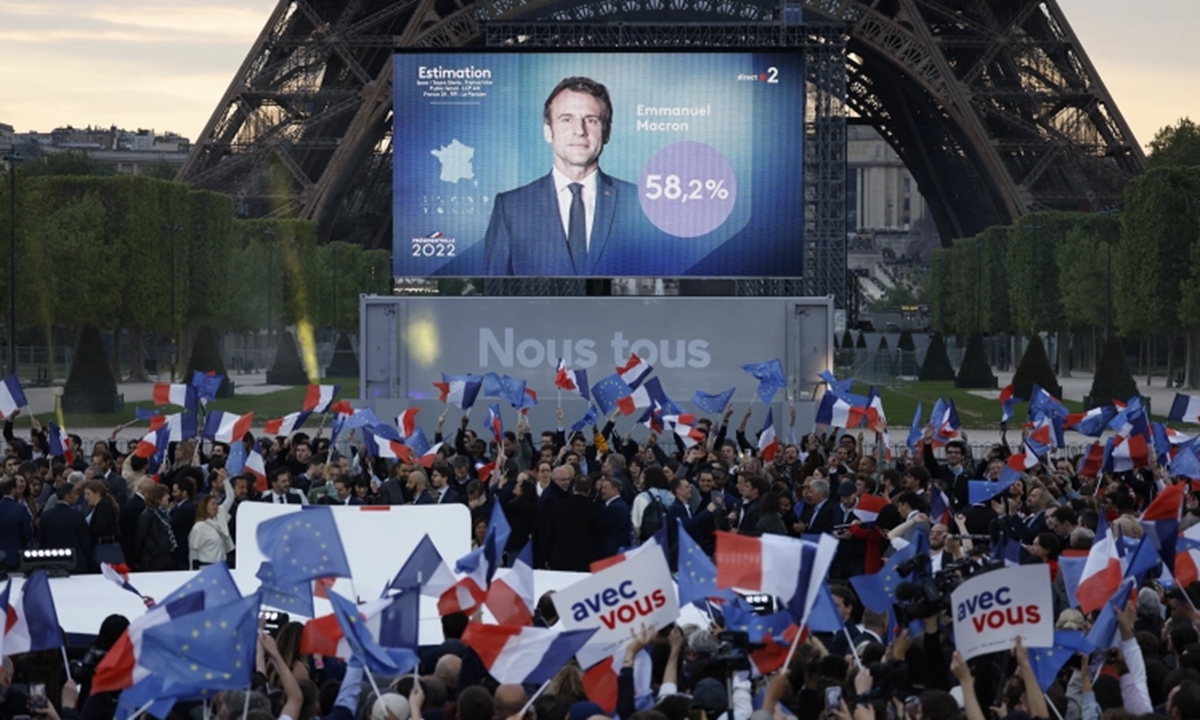Macron urges political ‘compromises’
President hosts opposition parties, but rules out national unity govt

Supporters cheer after the victory of Emmanuel Macron in France's presidential election, at the Champ de Mars, in Paris, on April 24, 2022. Photo: AFP
President Emmanuel Macron on Wednesday urged France's political forces to make compromises to end a political deadlock sparked by his failure to retain a parliamentary majority that threatens to wreck his reform plans.Macron's centrist alliance finished Sunday's parliamentary elections 44 seats short of a majority in the National Assembly, as a new left-wing coalition and the far right made major gains.
The situation has called into question Macron's plans for reform in his second term after his April presidential reelection and risks denting his international stature.
Breaking three days of silence in the wake of the elections, Macron in a televised address to the nation ruled out a national unity government but appeared upbeat on the chances for progress, even if he did not offer any concrete solutions.
Macron said France's political forces must "collectively learn to govern and legislate differently" by building "compromises, additions and amendments but doing so in complete transparency, for the sake of national unity."
He acknowledged that the ruling coalition had fallen short of an overall majority and "would have to expand, either by building a coalition deal or by creating majorities bill-by-bill," in the parliament.
But he ruled out any attempt to create a "government of national unity," saying such a move was "not justified" at this stage.
Macron acknowledged that the parliamentary elections had highlighted social problems in France, but he called on the opposition parties to "leave in-fighting behind" and move "beyond politics."
Over the past two days, Macron has hosted rare talks at the Elysee Palace with opposition leaders to find a way out of the crisis.
He met the head of the far-right National Rally (RN) Marine le Pen on Tuesday, while the head of the left-wing NUPES alliance, hard-leftist Jean-Luc Melenchon, sent lawmaker Adrien Quatennens, 32, to represent him in talks on Wednesday.
The meetings so far appear to have made little headway, and Macron has also rejected an offer from under-fire Prime Minister Elisabeth Borne to resign.
But Macron said the opposition were ready "to advance on major topics" such as the cost of living, jobs, energy, climate and health."
He said urgent draft laws, especially to alleviate the impact of inflation and rising energy prices, would be submitted to parliament over the summer.
Macron called on the opposition parties to "clarify in all transparency, in the coming days, how far they are willing to go" in their support of such measures, which he said would not be financed by higher taxes.
AFP
